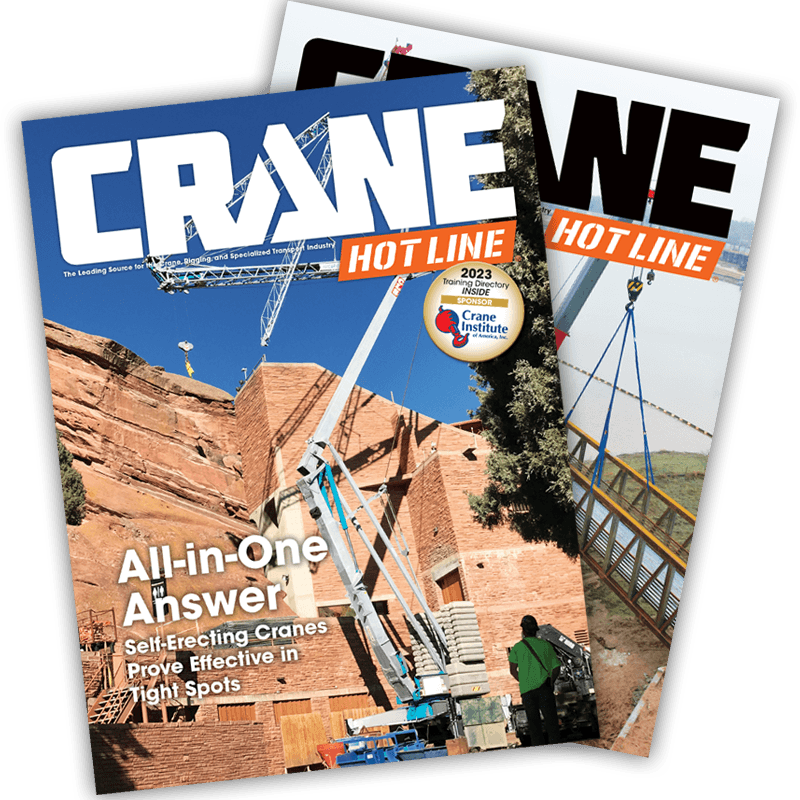ITI Hosts Pilot Tests for CIC-BC Reciprocal Crane Operator Exams
October 7, 2013 - In July, Industrial Training International (ITI), Woodland, Wash., hosted representatives from Crane Institute Certification (CIC), British Columbia Association for Crane Safety (BCACS), and Washington State Department of Labor & Industries for CIC to complete pilot testing for the release of a reciprocal crane operator certification program.
BCACS, Vancouver, British Columbia, is seeking to establish crane operator certification reciprocity agreements with U.S. certification providers to open employment options for U.S. operators and companies and to increase certification options for Canadian operators.
“Whether based in the United States or Canada, employers have a responsibility to make sure workers are qualified for the jobs they perform. CIC ‘s crane operator, rigger, and signal person certification programs offer a reliable and valid means of qualifying workers for employment, and provide an affordable method for employers to assess and document operators’ knowledge and skill." said Debbie Dickinson, Executive Director of CIC. “CIC is dedicated to helping employers protect its most valuable asset, human resources.”
BCACS representatives, including Fraser Cocks, Executive Director; Gunnar Mardon, Director of Strategic Initiatives; and Gordon Lindberg, Testing Subject Matter Expert, evaluated CIC’s practical exam process for Medium Telescopic Boom, 21-75 tons, using a 35-ton Grove rough-terrain crane, and a boom truck. The purpose was to determine if the test process meets all the requirements of WorkSafeBC, the regulator for crane operator certification in British Columbia. In all crane categories, CIC and BCACS found strong alignment of its testing criteria, including the importance of testing by type, capacity, and boom length. Both organizations recognize that this type of testing can be done efficiently and affordably.
According to Cocks, British Columbia has additional requirements for leveling the crane and understanding basic rigging principles that are not often included in U.S. crane operator certifications. BCACS is looking for a turnkey package that would meet WorkSafeBC requirements. After reviewing CIC’s practical exam, BCACS submitted a proposal for the development of a standardized test and observation form to BCACS’s Program Committee. The proposal resolves questions over how to test for leveling the crane and rigging skills. The review process was expected to be completed by October, followed by submission to WorkSafeBC.
“As soon as BCACS and WorkSafeBC finalize their review of CIC’s exams, CIC is prepared to issue tests immediately,” said Dickinson. “In addition to ITI, we have several Authorized Practical Examiners located along the U.S.-Canadian border slated to provide CIC-BCACS practical exams,” she said.
In order to meet labor demands in British Columbia, “Our industry is motivated to see this happen as fast as possible,” said Cocks.
According to Mike Parnell, President of ITI, a reciprocal crane operator certification test between the U.S. and British Columbia helps both crane operators and employers. “There is an inherent value for large multi-national companies that employ work forces in both countries,” he said. Large contractors that need to use employees with specialized skills could take advantage of the additional mobility a dual certification offers. Likewise, “This helps crane operators in the United States who would like to work in B.C.”
Yet, certification is just one barrier for B.C. employers seeking to put U.S. operators to work in Canada. Various other pieces of government documentation must be obtained. In an effort to simplify this process and to help employers and operators on both sides of the border, CIC is coordinating efforts with the British Columbia Construction Association (BCCA). One of BCCA’s programs, the Foreign Skilled Workers initiative, connects employers with qualified international candidates and vice versa.


